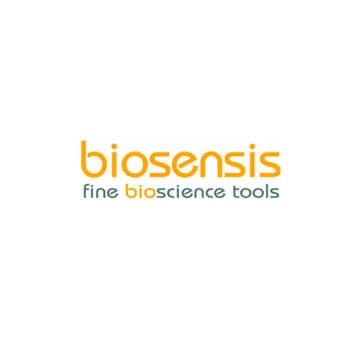
Supplier:
Aviva Systems Biology Incorporatedhuman Fas ELISA Kit (96 Wells)
Fas (APO-1 or CD95) is a cell-surface receptor that transduces apoptotic signals from Fasligand (FasL) (1, 2). It is a glycoprotein with a mass estimated at 43 to 48 kDa (3, 4). Fas is a member of the Tumor Necrosis Factor Receptor Superfamily (TNFRSF), and it shares a cytoplasmic motif with TNF RI, referred to as the пїЅdeath domainпїЅ, that binds cytoplasmic signaling molecules to trigger the cytoplasmic apoptotic signal (1, 2, 5). Fas is expressed to a large extent on activated T and B lymphocytes, and on malignant lymphoid cells. To a lesser extent, Fas is expressed on cells from liver, heart, kidney, ovaries, and on many other malignant cells. FasL, the physiological agonist for Fas, is also a transmembrane protein (1, 2, 5) with homology to the TNF family in its extracellular domain. FasL is expressed primarily by activated T lymphocytes and by cells of the small intestine and lung. Mice with mutations in either Fas or FasL exhibit accumulation of activated lymphocytes and classical autoimmune symptoms, suggesting that a major function of Fas-mediated apoptosis is the elimination of activated immune cells from the peripheral circulation (6). Similarly, humans with autoimmune lymphoproliferative syndrome have mutations in Fas (7, 8). Fas and FasL have been observed as soluble molecules in addition to their membrane associated forms, suggesting additional complexity to regulation of this apoptotic mechanism (9 - 11). Soluble Fas (sFas) arises from alternatively spliced mRNA, leading to proteins with deletion or disruption of the single membrane-spanning domain (9, 10). Five alternatively spliced Fas mRNAs have been described (10), each protein detected in the supernate of cultures of peripheral blood mononuclear cells or certain tumor cell lines. Each sFas inhibited apoptosis induced by FasL (9, 10), and tumor-cell lines resistant to anti-Fas were shown to produce alternatively spliced Fas, thereby making them less sensitive to FasL. In addition, plasma Fas can arise by exfoliation of membrane vesicles, which also inhibit FasL-induced apoptosis (12). Serum Fas has been reported to be elevated in cancer patients (13 - 16), possibly originating in the tumor cell itself (17), and in autoimmune diseases (18, 19).
For the quantitative determination of human Apoptosis inducing protein 1/ Fibroblast-associated (APO-1/FAS) concentrations in cell culture supernates, serum, and plasma.
Principle of the assay: This assay employs the quantitative sandwich enzyme immunoassay technique. A monoclonal antibody specific for APO-1/FAS has been pre-coated onto a microplate. Standards and samples are pipetted into the wells and any APO-1/FAS present is bound by the immobilized antibody. Following incubation unbound samples are removed during a wash step, and then a detection antibody specific for APO-1/FAS is added to the wells and binds to the combination of capture antibody-APO-1/FAS in sample. Following a wash to remove any unbound combination, and enzyme conjugate is added to the wells. Following incubation and wash steps a substrate is added. A colored product is formed in proportion to the amount of APO-1/FAS present in the sample. The reaction is terminated by addition of acid and absorbance is measured at 450nm. A standard curve is prepared from seven APO-1/FAS standard dilutions and APO-1/FAS sample concentration determined.
Prices direct from Aviva Systems Biology Incorporated
Quick response times
Exclusive Absave savings/discounts
Applications
ELISA
Reactivities
Hum
Applications
ELISA
Reactivities
Hum
Latest promotions
Buy any polyclonal or monoclonal antibody from our extensive range of pre-made antibodies and for a limited time only receive a $50 discount!(T&C apply:...
New brilliant antibodies, and new lower prices!For flow cytometry reagents in general, \"bright is better.\" The violet-excitable BD Horizon™ BV421 and...
10% Discount on 2 Rabbit Polyclonal Antibody Service. With over 20 years experience, SDIX has developed into the premier US custom antibody producer,...
For the past decade scientists have extensively used ATS secondary toxin conjugates to make their own targeted toxins for in vitro use.The ability to combine...
We're so sure that you'll prefer Cayman Assay kits over your present brand that we're willing to give you a free assay kit to prove it!
Did your supplier increase the price of Fetal Bovine Serum? Did they substitute the US Origin with USDA? Well say no more! Innovative Research is still...
Bulk Cytokines with Custom Vialing.20 - 50% off cytokines, growth factors, chemokines and more...For a limited time Cell Sciences is offering substantial...
Are you planning to have a customised antibody made for your research?Since 2000, Everest has been producing a catalog containing thousands of affinity...
Top suppliers
Agrisera AB
11 products
Biotrend
Biosensis
969 products
ABBIOTEC
3011 products
SDIX
1 products
Spring Bioscience
2291 products
Cell Signaling Technology
4976 products
Rockland Immunochemicals, Inc.
7592 products
Boster Immunoleader
1533 products
OriGene Technologies Inc.
5281 products
Maine Biotechnology Services
227 products
BD (Becton, Dickinson and Company)
1 products
ABNOVA CORPORATION
Randox Life Sciences
1502 products











